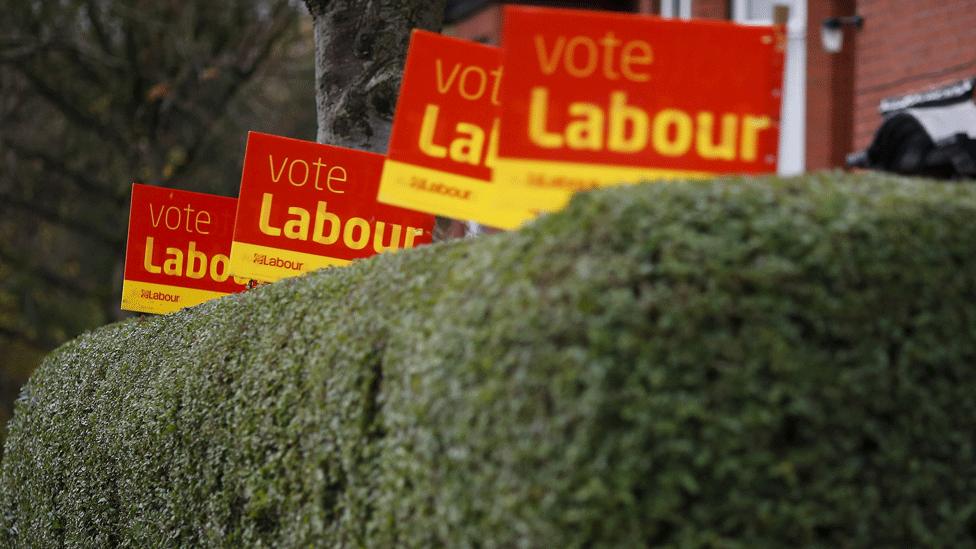Party report highlights Labour's failings in Scotland
- Published

Labour lost the Westminster election and saw 40 of its 41 seats go in Scotland
Scottish Labour's general election collapse was due to a "vote against Westminster" becoming a "vote against Labour", a report has found.
The party was left with just one MP in Scotland last May as the SNP won 56 of the 59 seats.
Dame Margaret Beckett's report, external said the party came to represent "continuity rather than change" in Scotland.
And she said the Scottish result made it impossible for the party to win the election.
Dame Margaret, a former Labour cabinet minister, led a taskforce set up to examine why Labour performed worse than expected in the election.
Her report said that pollsters and activists on the doorstep consistently heard four main reasons for the party's defeat:
Ed Miliband wasn't judged to be as strong a leader as David Cameron
A failure to shake off "the myth" that Labour was responsible for the financial crash and failure to build trust on the economy
An inability to deal with the issues of "connection" and, in particular, failing to convince on benefits and immigration
The fear of the SNP "propping up" a minority Labour government
The report said Scottish Labour came to "represent continuity rather than change" and that it is "widely believed that the collapse had been a disaster waiting to happen, perhaps for many years".
But despite awareness of an impending defeat in Scotland, Labour still believed it would prevent the Conservatives from gaining an overall majority and that instead, Labour could form a minority government.

The report said voters did not see Ed Miliband as a prime minister
The report said Labour must "develop a long term strategy for Scotland" and the Scottish party, while remaining "a key part" of the UK party, must develop "significant autonomy" in policy areas relevant to Scotland.
It acknowledged that "Scotland is a huge challenge" for Labour, and that if it failed to recover north of the border the party in England and Wales would require a 12.5% swing from the Conservatives in order to form a majority UK government.
The report said that in the aftermath of the independence referendum, no one envisaged that the prime minister would call for English Votes for English Laws and that few realised that "support for the Yes campaign might lead to increased support for the SNP".
It was after this that the SNP adopted Labour policies and built "not only on the emotion of the referendum but on the perception of a possible betrayal of government promises", the report stated.
And it highlighted that while Labour in Scotland was forced to conduct a leadership election, the SNP was left to disseminate "their post referendum narrative".
The report found that the result in Scotland was a vote against the government but also "in a sense, a vote against Westminster" and that due to Conservative "weakness" in Scotland, a vote against Westminster also turned into a vote against Labour.
And it concluded that the party needs a massive upswing in its fortunes in England and Scotland if it is to be returned to power in five years time.